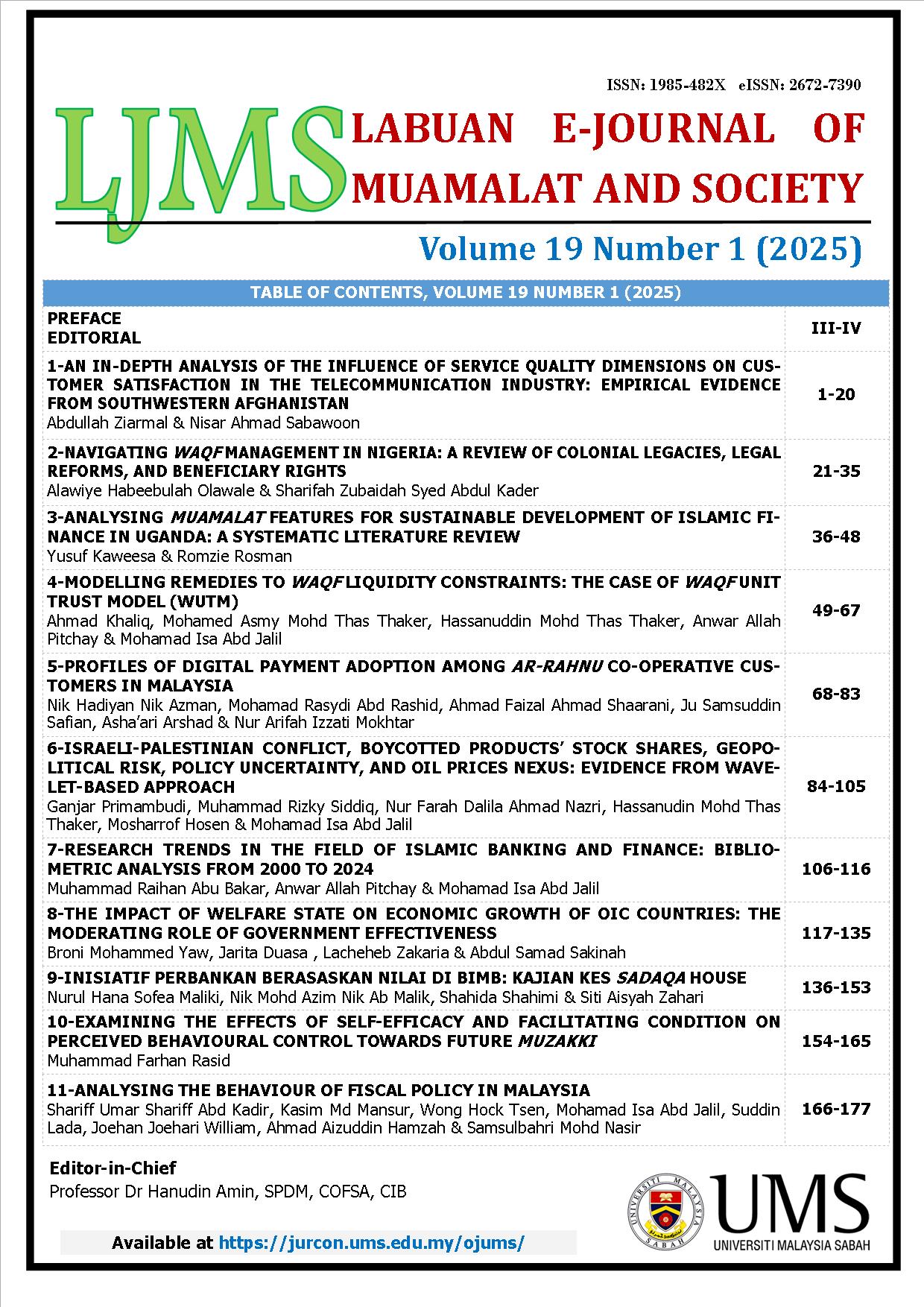EXAMINING THE EFFECTS OF SELF-EFFICACY AND FACILITATING CONDITION ON PERCEIVED BEHAVIOURAL CONTROL TOWARDS FUTURE MUZAKKI
DOI:
https://doi.org/10.51200/ljms.v19i1.6046Keywords:
Behaviour, Islamic social finance, Muzakki, Zakat, MalaysiaAbstract
The paper focuses on understanding the effect of self-efficacy and facilitating condition on the behavioural intentions of civil officers in Malaysia to be the future muzakki. In this study, a theoretical framework extracted from the Theory of Planned Behaviour (TPB) is applied to understand the factors associated with perceived behavioural control and intentions to be future muzakki. The study further believes that the theory will appreciate the factors that determine civil officers' intention to be a muzakki. Hence, though this research is one of the first attempts in this regard, it recognises some limitations in terms of the scope of theories, variables, and geographical coverage that risks or merits further research. The purpose of this study is to examine the governance practices of zakat institutions in Malaysia, especially in fostering trust and strengthening the willingness of civil officers’ to contribute to zakat through formal channels. Finally, this article presents an examination of the effects of self-efficacy and facilitating condition on perceived behavioural control towards future muzakki. It contributes to the development of the existing theoretical framework by applying a novel theoretical synthesis.
Downloads
Published
How to Cite
Issue
Section
License
Copyright (c) 2025 Labuan e-Journal of Muamalat and Society (LJMS)

This work is licensed under a Creative Commons Attribution 4.0 International License.











